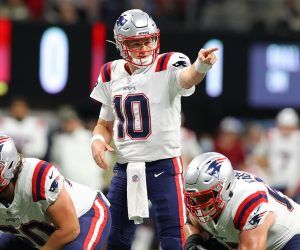Esports gaming has become big business. With revenues crossing the $1 billion barrier, players begin to clamor for a bigger piece of the industry’s ever increasing pie. But what are some of the hurdles to an esports players union?

Wired Magazine predicts a surge in union organizing among esports players. In their annual look-ahead report (The Wired World in 2019) the magazine predicts increasing union activities to get players a fair share of growing revenues. These chair-bound athletes are also seeking health coverage for gaming related injuries.
Ever wonder where carpal tunnel syndrome is the highest? Try these digital athletes. And yes, they are athletes. Professional esports players can earn in the six-figure range and no longer inhabit mom’s basement eating delivery pizza. Imagine if an NBA game were played with a 30-minute running clock, no time-outs and no fouls; that’s esports. Fast, furious with fans in the hundreds of millions.
Esports revenues continue to soar. Forbes recently estimated proceeds “to top $1 billion in 2019″Â — with the US, India, and China leading the way in participation and fanbase. But esports pros are finding the way to economic gain a difficult road. Which leads to the calls for a union.
However, esports players face unique challenges that will hinder the effort for professional gamers to organize.
Hurdles to Esports Unions
Here are some of the challenges to forming a large esports union.
- As of today, esports athletes are independent contractors not employees. As such they are not entitled to unionize. No group of non-employee workers have formed a successful union. Unions, by definition, are a coalition of employees.
- Other sports unions are exclusive to one game. Major League baseball is a union separate from the National Football League’s Player’s Association. In Europe, different football leagues have separate unions. Does an esports union need to be specific to just one game or one platform? In all other sports leagues, the game differentiates the union. Are we looking at multiple esports unions? How would those unions cooperate?
- Esports players live and work everywhere in the world. However, players compete almost exclusively in events with other international players. They live in different legal jurisdictions. Which set of labor laws, from which country would govern?
- Multiple esports leagues in various countries do not cooperate. Even leagues playing the same game do not cooperate. For a union to succeed there needs to be cooperation among the players. As of today no such outreach exists. In fact, the competition between leagues may well work against any joint action to unionize.
“It may be counterproductive and wasteful to establish incongruous and decentralized esports unions for the many, many titles that are involved in the esports industry.” Lester Mason
Early Attempts at Esports Unions
In 2017, what amounts to a first ever esports union was initiated by Riot Games. The League of Legends Player Association is a game specific organization to give players a voice in negotiations between “players, teams and Riot Games.” While not a legally recognized union, this is the first player association among esports participants. Worldwide, League of Legends has over 100 million players. Professionals on just this one game range between 2,500 and 5,000.
“Advocates say that forming a grassroots player’s union would be a positive step forward for the players to collectively bargain with team owners and league officials for their working conditions, salary, and other employment rights traditionally afforded to union members.” esportsobserver.com
Similarly, there is a move by players to form a union based on Blizzard Entertainment’s Overwatch. The stated goal is to expand the Overwatch organizing to other esports platforms. This is the first real attempt to economically link esports players regardless of game or platform
Future of Esports Unions
Unionizing even in the midst of all the potential pitfalls remains important to the players. Not only is increased earning potential a big draw but esports players are athletes, subject to both physical and mental strains. Therefore, medical and health benefits provide a strong secondary reason for union protections.
Will esports unions happen?
The simply answer is yes. However, unions will likely form around individual games or around multiple games associated with a single company. But future affiliations with stronger unions like the AFL-CIO will bring business expertise that gamers are not likely to have. It will take time and a lot of organizing to pull players from different countries and the wide range of games to centralize into a single powerful esports union.
Tim Lavalli holds a Ph.D. in psychology and has focused his work on the mental aspects of competitive games. He co-authored Check-Raising the Devil, the autobiography of poker pro Mike Matusow. You can follow him on Twitter @timlavalli.












This has become so relevant when you look at Blitzchung, a Hearthstone player, who played the game for 4 years, and because of one comment in one interview, has now been banned from the game. There needs to be an organization that can pool resources to address when situations like that arises, and advocate for the player’s rights.